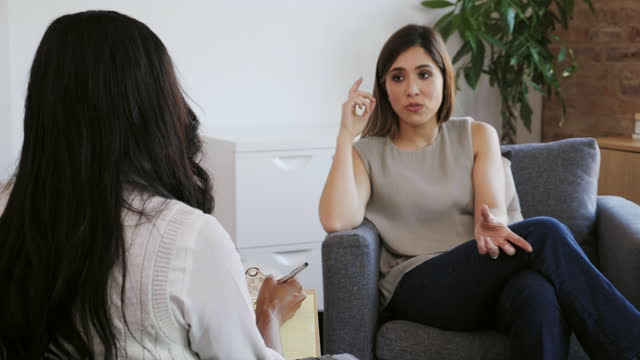Private relationship counseling offers couples a sanctuary to explore their dynamics, communicate openly, and resolve conflicts in a confidential setting. Whether you’re seeking to strengthen your bond, address specific issues, or simply understand each relationship phase, counseling provides tailored tools and strategies. This blog delves into the benefits, processes, and outcomes of private relationship counseling, helping you determine if it’s the right step for your relationship journey.
Contents
When To Consider Private Relationship Counseling?
 Private relationship counseling can be a beneficial step for couples at various stages of their relationship. So, here are some key indicators to look for:
Private relationship counseling can be a beneficial step for couples at various stages of their relationship. So, here are some key indicators to look for:
- Communication Breakdowns: When conversations frequently result in conflicts, misunderstandings, or leave feelings unresolved, it can indicate a breakdown in communication.
- Loss of Emotional Connection: If one or both partners feel emotionally distant, disengaged, or like they’re “going through the motions,” counseling can help in rediscovering emotional intimacy and rekindling the connection.
- Trust Issues: Events such as infidelity, deceit, or even smaller recurring breaches of trust can severely impact a relationship.
- Life Changes and Stress: Major life transitions like moving, changing jobs, or having children can strain relationships.
- Frequent Arguments: If arguments are frequent, escalate quickly, or never seem to resolve, it’s a sign that underlying issues may need to be addressed professionally.
- Different Visions for the Future: When couples have differing views on significant subjects like finances, career paths, or parenting, counseling can help them find common ground or compromise.
- Sexual Dissatisfaction or Differences: If there are discrepancies in desire or dissatisfaction in the sexual relationship, counseling can address the psychological, emotional, and physical aspects of intimacy.
- Considering Separation or Divorce: If separation or divorce seems like a possibility, counseling might help by providing a clearer perspective on the relationship. It can help couples decide if they should work on their relationship or part ways amicably.
- Feeling Stuck or Resentful: When resentment builds up, or if partners feel stuck in negative patterns without a way out, counseling can offer fresh insights and pathways to move forward.
Recognizing when to seek help is a proactive step toward maintaining a healthy, fulfilling relationship. Private relationship counseling can provide the necessary tools and insights to address challenges and enhance the bond between partners.
How Is Private Relationship Counseling Conducted?
 Private relationship counseling is typically conducted in a structured and supportive environment where both partners work with a trained counselor or therapist to explore their relationship dynamics, address specific issues, and develop strategies to improve their interaction and understanding.
Private relationship counseling is typically conducted in a structured and supportive environment where both partners work with a trained counselor or therapist to explore their relationship dynamics, address specific issues, and develop strategies to improve their interaction and understanding.
Steps
Here’s a closer look at how private relationship counseling is generally conducted:
Initial Consultation
The process usually begins with an initial consultation, where the counselor meets with the couple to understand their backgrounds, the history of their relationship, and the issues they are facing. This session sets the stage for future work and helps the counselor tailor their approach to the specific needs of the couple.
Setting Goals
During the early sessions, the counselor will help the couple articulate their individual and shared goals for therapy. These goals could range from improving communication and rebuilding trust to resolving specific conflicts or enhancing emotional intimacy.
Regular Sessions
Counseling typically involves regular sessions (e.g., weekly or biweekly), each lasting about 50 to 60 minutes. During these sessions, the counselor facilitates discussions that aim to uncover underlying issues, improve communication, and teach coping strategies. Techniques might include:
- Active Listening Exercises: Encouraging partners to listen to each other without interrupting, which fosters understanding.
- Communication Techniques: Teaching methods such as “I” statements to help partners express their feelings without blaming.
- Conflict Resolution Strategies: Guiding couples on how to resolve disputes constructively without damaging their relationship.
- Emotionally Focused Therapy (EFT): Focusing on the emotional bonds between partners and strengthening these bonds.
Individual Sessions
Occasionally, the counselor may also conduct individual sessions with each partner. This allows for addressing personal issues that may be impacting the relationship but are difficult to discuss in the presence of the spouse.
Homework Assignments
Counselors often give couples tasks to perform at home, designed to practice the skills they are learning in therapy. These might include communication exercises, date nights, or journaling about specific topics discussed in therapy.
Progress Reviews
Throughout the counseling process, there will be opportunities to assess progress toward the couple’s goals. This may involve revisiting the goals to see if they remain relevant or need adjustment based on the therapy’s evolution.
Conclusion of Therapy
Once the couple feels they have achieved their goals, or have made significant improvements, the therapy sessions might be spaced out more or concluded. The counselor will help them develop a plan to maintain and build on their progress, including how to handle future conflicts or challenges.
Private relationship counseling offers a confidential, safe space for couples to explore sensitive issues without judgment. It provides them with tools and strategies to enhance their relationship, often leading to profound and lasting improvements.
For more information, please contact MantraCare. Relationships are an essential part of human life. It is the connection between people, and it helps us to form social bonds and understand and empathize with others. If you have any queries regarding Online Relationship Counseling experienced therapists at MantraCare can help: Book a trial therapy session



